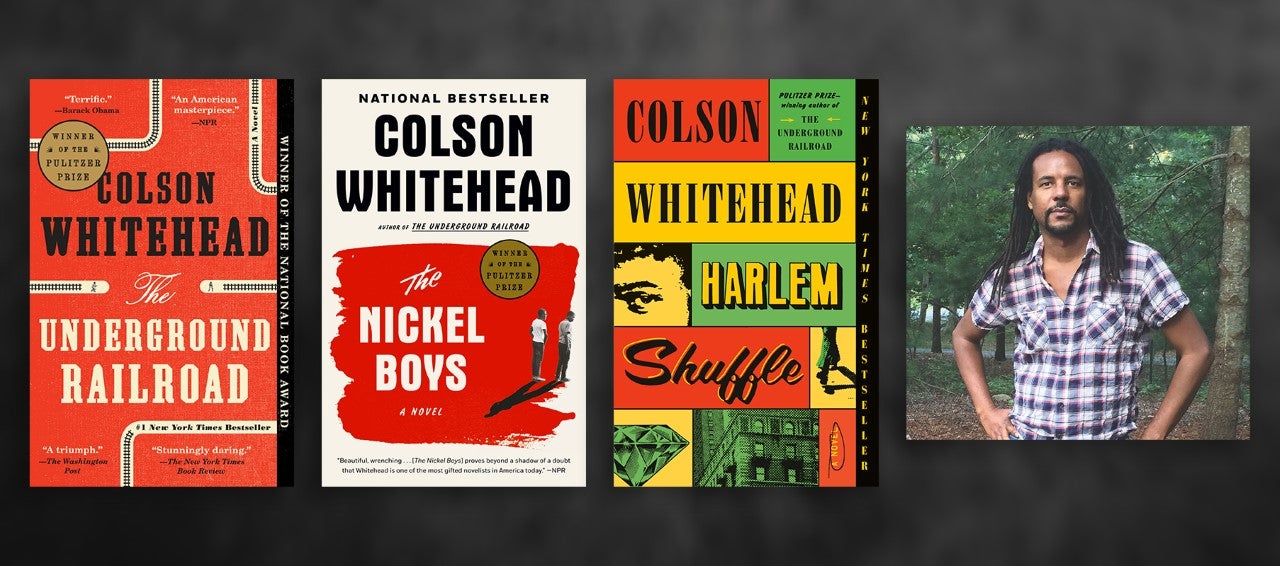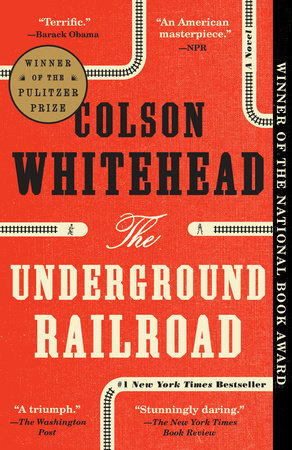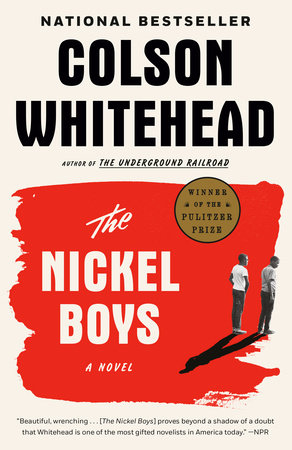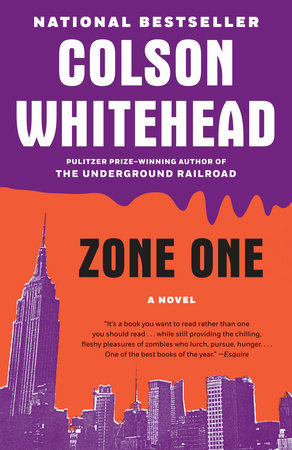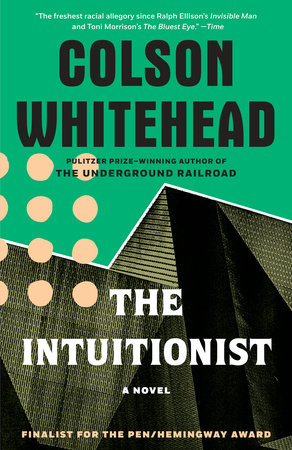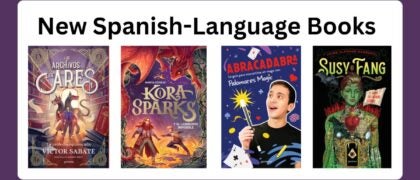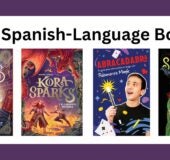Colson Whitehead is the two-time Pulitzer Prize winning author of The Underground Railroad and The Nickel Boys, as well as The Noble Hustle, Zone One, Sag Harbor, The Intuitionist, John Henry Days, Apex Hides the Hurt, and The Colossus of New York. His latest novel, Harlem Shuffle, is just out in paperback. In many of his novels, Whitehead often introduces characters and narratives drawn from the past in order to illuminate the complex systems that support racism to this day.
In Colson Whitehead’s Harlem Shuffle, an ingenious story plays out in a beautifully recreated New York City of the early 1960s. It’s a family saga masquerading as a crime novel, a hilarious morality play, a social novel about race and power, and ultimately a love letter to Harlem.
Praise for Harlem Shuffle:
“Enthralling, cinematic. . . . Whitehead’s evocation of early 1960s Harlem—strewn with double-crosses and double standards, broken glass and broken dreams—is irresistible. . . . A valentine to a time and place.” —Minneapolis Star-Tribune
Watch Colson Whitehead discuss Harlem Shuffle, which is now available in paperback:
Colson Whitehead often introduces characters and narratives that exist in the past so his advice relates to his own writing on race, and the complex systems that have supported racism.
His novel, The Underground Railroad, Winner of the Pulitzer Prize, Winner of the National Book Award, Winner of the Andrew Carnegie Medal for Excellence in Fiction, and Longlisted for the Man Booker Prize, brilliantly re-creates the terrors of the antebellum era, in which he weaves in the saga of our nation, from the brutal abduction of Africans to the unfulfilled promises of the present day.
Find the Teacher’s Guide for The Underground Railroad here.
Praise for The Underground Railroad:
“[A] potent, almost hallucinatory novel. . . . It possesses the chilling matter-of-fact power of the slave narratives collected by the Federal Writers’ Project in the 1930s, with echoes of Toni Morrison’s Beloved, Victor Hugo’s Les Misérables, Ralph Ellison’s Invisible Man, and brush strokes borrowed from Jorge Luis Borges, Franz Kafka and Jonathan Swift. . . . He has told a story essential to our understanding of the American past and the American present.” —Michiko Kakutani, The New York Times
“With this novel, Colson Whitehead proves that he belongs on any short list of America’s greatest authors—his talent and range are beyond impressive and impossible to ignore. The Underground Railroad is an American masterpiece, as much a searing document of a cruel history as a uniquely brilliant work of fiction.” —Michael Schaub, NPR
“I haven’t been as simultaneously moved and entertained by a book for many years. This is a luminous, furious, wildly inventive tale that not only shines a bright light on one of the darkest periods of history, but also opens up thrilling new vistas for the form of the novel itself.” —Alex Preston, The Guardian
Watch him discuss writing about race in the past to evoke the present:
His novel The Nickel Boys, Winner of the Pulitzer Prize, Winner of the Orwell Prize, Winner of the Library of Congress Prize for American Fiction, and Winner of the ALA Alex Award, Winner of the Kirkus Prize for Fiction, brilliantly dramatizes another strand of American history through the story of two boys sentenced to a hellish reform school in Jim Crow-era Florida.
Praise for The Nickel Boys:
“Colson Whitehead continues to make a classic American genre his own. . . . The narration is disciplined and the sentences plain and sturdy, oars cutting into water. Every chapter hits its marks. . . . Whitehead comports himself with gravity and care, the steward of painful, suppressed histories; his choices on the page can feel as much ethical as aesthetic. The ordinary language, the clear pane of his prose, lets the stories speak for themselves. . . . Whitehead has written novels of horror and apocalypse; nothing touches the grimness of the real stories he conveys here.” —The New York Times
“The understated beauty of his writing, combined with the disquieting subject matter, creates a kind of dissonance that chills the reader. Whitehead has long had a gift for crafting unforgettable characters, and Elwood proves to be one of his best. . . . The Nickel Boys is a beautiful, wrenching act of witness, a painful remembrance of an ‘infinite brotherhood of broken boys,’ and it proves beyond a shadow of a doubt that Whitehead is one of the most gifted novelists in America today.” —NPR
Watch him discuss The Nickel Boys here:

